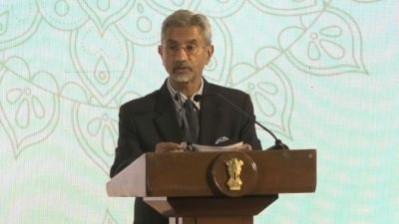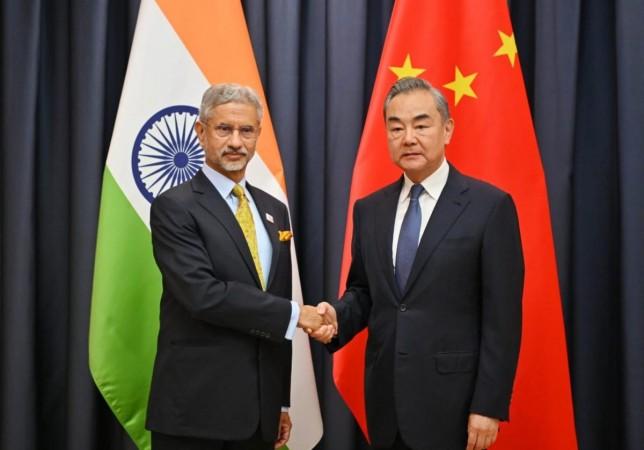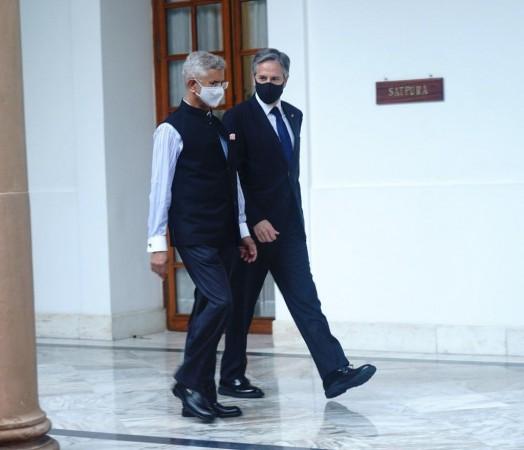
Indian External Affairs Minister S. Jaishankar met with Chinese counterpart Wang Yi in Astana, focusing on peace along the border and rebuilding bilateral relations. The Line of Actual Control (LAC) was a focal point, with Jaishankar emphasizing its respect and enforcement of peace in border areas.
The ministers agreed on the need for an early resolution to issues along the LAC in Eastern Ladakh, and discussed ways to "stabilize and rebuild" bilateral relations. The meeting underscored the importance of diplomatic engagement, mutual respect, and the role of the SCO summit in discussing regional security, economic cooperation, and cultural exchanges.
In a significant diplomatic development, External Affairs Minister S. Jaishankar of India met his Chinese counterpart Wang Yi in Astana, the capital of Kazakhstan. The meeting, which took place on the sidelines of the SCO Meeting of the Council of Heads of State, was marked by a candid exchange of views on bilateral issues, primarily focusing on the restoration of peace along the border and rebuilding relations between the two nations.
The Line of Actual Control (LAC), a demarcation that separates Indian-controlled territory from Chinese-controlled territory, was a focal point of the discussion. Jaishankar emphasized that the LAC must be respected and peace and tranquillity in the border areas must always be enforced. This statement underscores the importance of maintaining stability in the region, which has been a point of contention between the two countries for several years.

The two ministers agreed that the prolongation of the current situation in the border areas is not in the interest of either side. This mutual understanding led to an in-depth exchange of views on finding an early resolution to the remaining issues along the LAC in Eastern Ladakh.
The Ministry of External Affairs (MEA) of India stated that the ministers discussed ways to stabilise and rebuild bilateral relations, indicating a shared commitment to resolving the border dispute. Jaishankar further emphasized the need to redouble efforts to achieve complete disengagement from the remaining areas in Eastern Ladakh. He stressed the importance of restoring border peace and tranquillity, which is crucial for the stability of the region and the overall relationship between the two countries.
The meeting also saw a reaffirmation of the importance of fully abiding by relevant bilateral agreements, protocols, and understandings reached between the two governments in the past. This includes the agreement on the Working Mechanism on Consultation and Coordination on India- China Border Affairs (WMCC), which the leaders agreed should hold an early meeting to expedite the resolution process.
The India-China relationship, Jaishankar reiterated, is best served by observing the three mutuals -- mutual respect, mutual sensitivity, and mutual interests. This statement reflects the diplomatic approach India is taking to manage its relations with China, emphasizing the importance of mutual understanding and respect in international relations.

The meeting between Jaishankar and Wang also provided an opportunity for the two ministers to exchange views on the global situation. This exchange is significant as it allows the two countries to understand each other's perspectives on global issues, thereby facilitating better cooperation on international platforms.
In addition to the meeting with Wang, Jaishankar also had meetings with UN Secretary-General Antonio Guterres and foreign ministers of other SCO countries. These meetings underscore the importance of the SCO summit as a platform for member countries to discuss regional security, economic cooperation, and cultural exchanges.
The border dispute between India and China is not a new issue. The two countries have been locked in a standoff since May 2020, and a full resolution of the border row has not yet been achieved. However, the two sides have disengaged from a number of friction points, indicating progress in the resolution process.
The meeting between Jaishankar and Wang in Astana marks a significant step towards resolving the India-China border dispute. The emphasis on respecting the LAC, restoring peace in the border areas, and rebuilding bilateral relations indicates a shared commitment to resolving the dispute. The meeting also underscores the importance of diplomatic engagement and mutual respect in managing complex international relations. The historical context of the dispute and the ongoing efforts to resolve it peacefully highlight the importance of this diplomatic engagement.

















